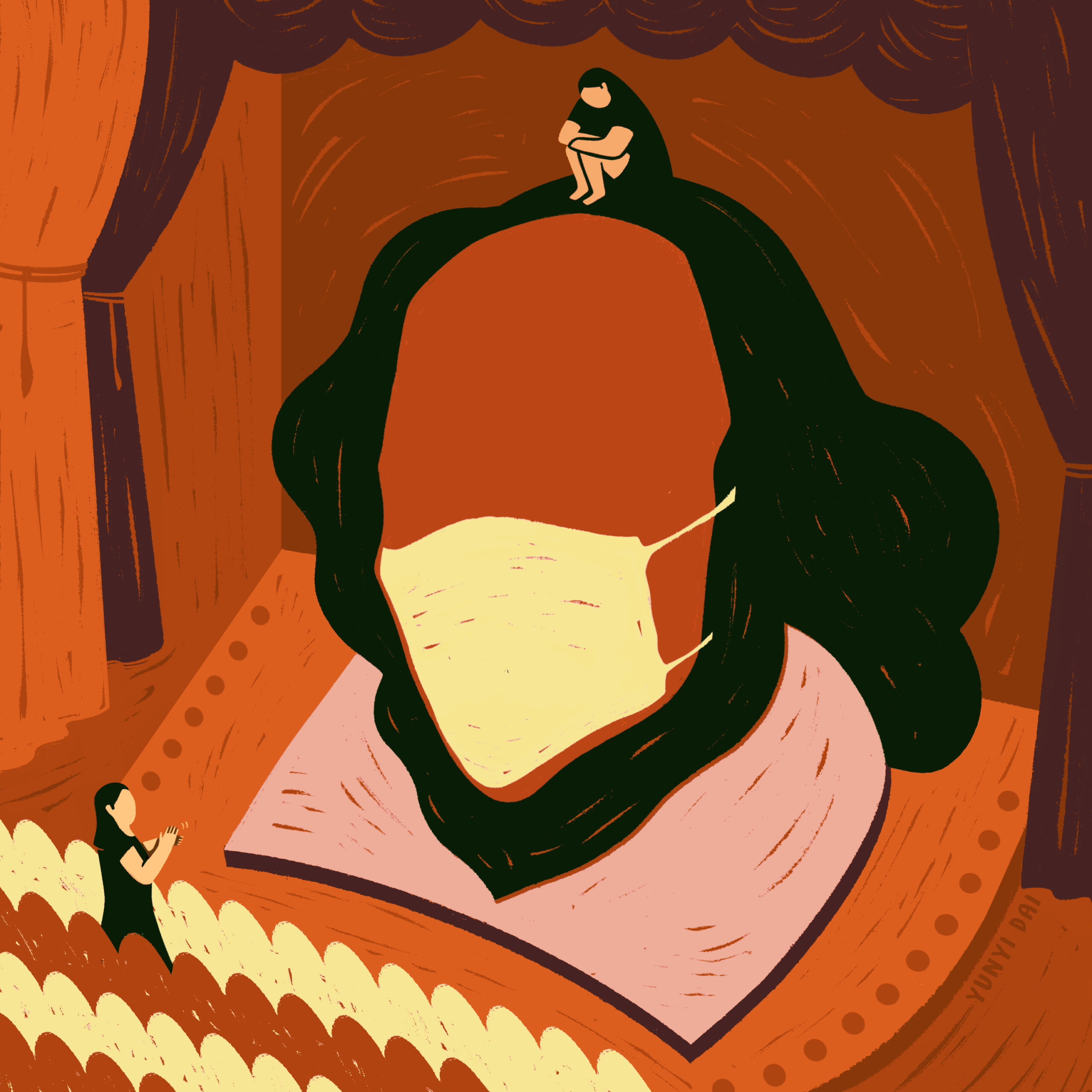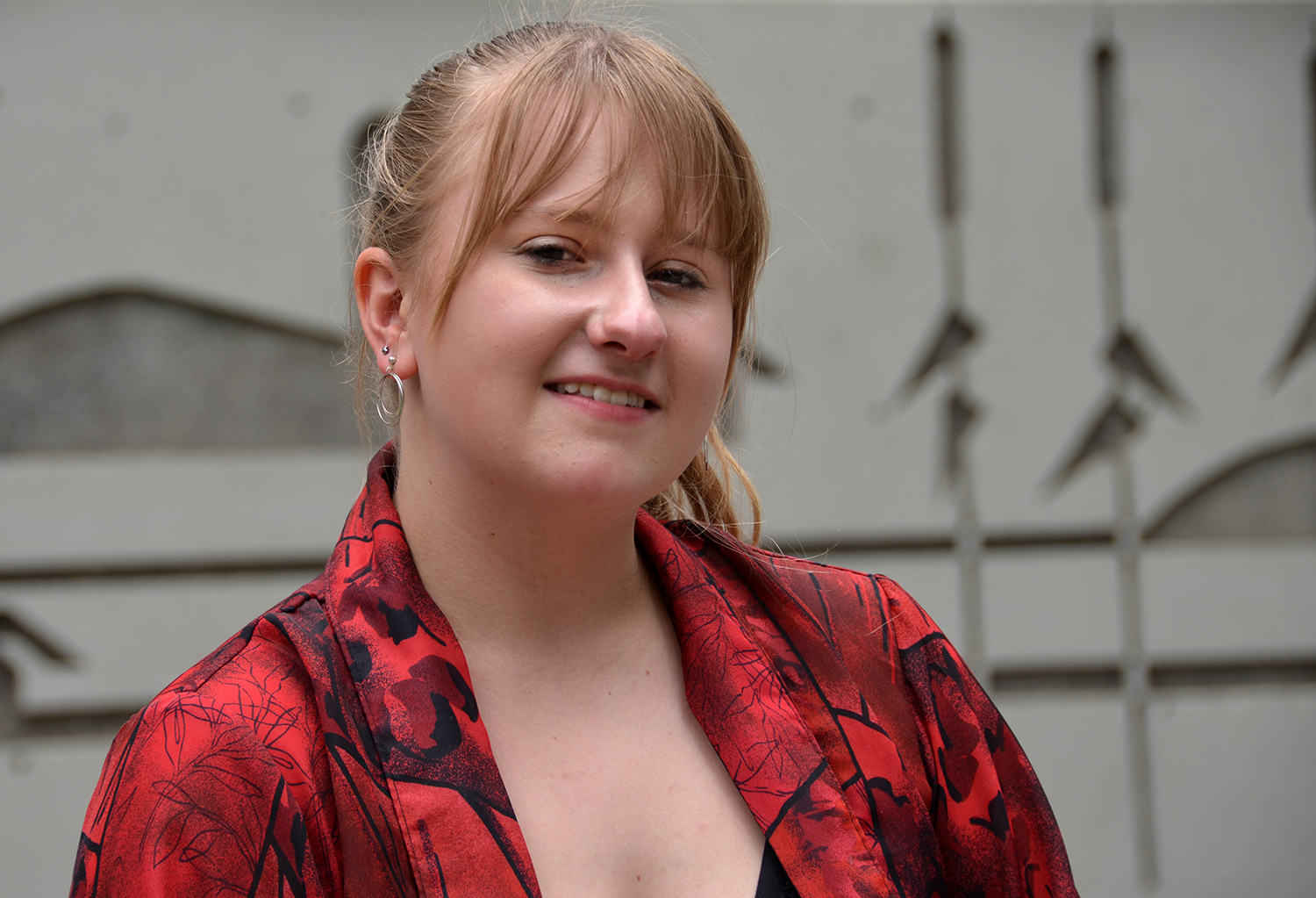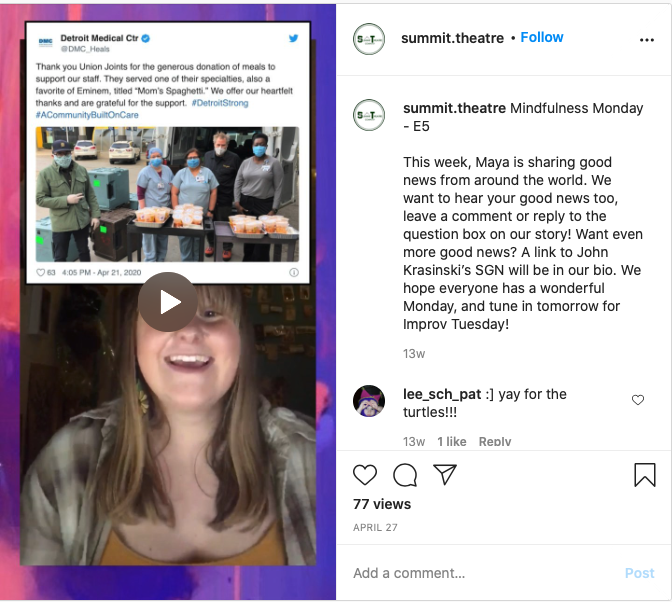NextGenRadio
@ Oregon Public Broadcasting“In the Time of COVID-19”
Hanna Merzbach reports for NPR’s Next Generation Radio. When Summit High School’s spring production was abruptly interrupted by the coronavirus pandemic, teacher Lara Okamoto and student Maya Gardner had to get creative with how to perform online and keep the safe space for students. They cancelled their live show and instead produced a Shakespeare Cabaret over Zoom, giving Gardner experience with virtual performances before facing new realities in college theater.

From the stage to Zoom
By Hanna Merzbach
Theater student takes lessons from COVID with her to college
In late May, after weeks of practice, six high school theater students signed onto Zoom and belted out Shakespeare monologues from the small stages of their homes in Bend, Oregon.
Absent costumes, props and an audience of people, it was not what they had envisioned when deciding to audition for the spring production earlier this year.
When Summit High School’s production of “Much Ado About Nothing” was abruptly interrupted by COVID-19, theater teacher Lara Okamoto and her students had to get creative with their spring performance.
“Like everyone else, teachers were kind of shooting from the hip,” Okamoto said. “We haven’t been trained in online education. We were just doing the best we can with what we had and trying to support our students as best we can.”
One of Okamoto’s past students, Maya Gardner, is a recent graduate of Summit High School. She was always drawn to theater as a kid, but she was never able to join extra curricular programs growing up because of the costs. When she got to high school, she participated in almost every school play and musical, and spent her senior year as president of the Summit Theatre Company, the school’s theater troupe.
When it was announced the school was shutting down, the students didn’t know what to think.
“I like to kind of help a lot of the younger people within our department,” Gardner said. “And so they were coming to me asking questions about how I thought it was going to play out. And I had no idea.”
While the students had no idea, teachers like Okamoto were trying to figure it out. Okamoto relied on Gardner, and other student leaders, to ease the transition online.
But she still had many unanswered questions about how to adapt an artform that relies entirely on in-person interaction.
“What am I going to do to provide [students] with that same level of experience and education if we go to an online setting?” Okamoto said. “And the answer was, ‘I don’t know, let’s just see how this plays out.’”
With the announcement that there would be no more in-person classes, Okamoto decided to prioritize connecting with students during the stressful time.
“I knew that there were a lot of students that still have a need for an outlet,” Okamoto said. “And theater is that passion for them and their safe space and a place where they go to ignore everything else that’s going on in the world and be able to have fun.”
Instead of blocking and rehearsing an entire play over Zoom, Okamoto and six of her students decided to produce a Shakespeare cabaret, each selecting their own Shakespeare monologues. They prerecorded the performances over Zoom, and then streamed them on YouTube.
Gardner chose two character monologues: the Jailer’s Daughter from “The Two Noble Kinsmen” and Lady Anne from “Richard III.” Rehearsing and performing these monologues was cathartic for Gardner in an uncertain time.
“So many things were out of my control that I absolutely couldn’t fix, and that’s something that I’m not very good at dealing with,” Gardner said. “So getting to work through this monologue and work through the character’s emotions also allowed me to understand and work through my emotions better.”
In her leadership role at the Summit Theatre Company, Gardner worked to maintain a sense of community for her fellow students through social media. She hosted weekly “Mindfulness Mondays” on Instagram to help students ground themselves.
Other theater students produced “Improv Tuesdays,” “Wacky Wednesdays,” “Theater Club Thursdays,” “Film Fridays,” “Saturday Afternoon Fever” and “Sunday Fundays.”
“We put in a lot of work so that we could have content and continue to create things,” Gardner said. “We as theater kids aren’t very good at sitting still and doing nothing.”
Meanwhile, Okamoto has been taking time this summer to think about how to improve her teaching and directing next fall, whatever that looks like.
“I am excited about being able to do it better for my students now that I’ve had some reflection about what works and what definitely does not work,” Okamoto said. “And how we can make the most of our time together and make the situation the best we can for each other.”
Gardner is reflecting on the last few months too. Though she wishes that she could have finished out high school in person, Gardner is grateful to have experience performing online, as she will rely on these skills going into college theater at the University of Southern California in the spring.
“Theater has taught me a lot about flexibility because backstage during a show, things are constantly changing and you have no idea what’s going to happen next,” Gardner said. “That’s one of the most ironic things about theater, is that shows are scripted out … but it never goes that way.”
While she is unsure what theater will look like going forward and a little nervous about the future of the industry, Gardner is optimistic that theater will survive.
“Theater as an art form is incredibly resilient,” Gardner said. “We’re going to keep creating theater, we’re going to do it safely … I know that the world is going to continue telling stories and sharing stories because it’s absolutely essential to be able to learn from each other and relate to each other.”
About NextGenRadio
The Next Generation Radio Project is a week-long digital journalism training project designed to give competitively selected participants, who are interested in radio and journalism, the skills and opportunity to report and produce their own multimedia story. Those chosen for the project are paired with a professional journalist who serves as their mentor.
This edition of the #NPRNextGenRadio project was produced in collaboration with Oregon Public Broadcasting in July 2020.
Acknowledgements
Our audio engineer is Patrice Mondragon.
Our illustrators are Yunyi Dai and Ard Su.
Our visuals editor is Erica Lee.
Our web producer is Robert Boos.
Our managing editor is Traci Tong.
Our digital editor is Joanne Griffith.
Special thanks to our journalist-mentors this week:
- Tiffany Camhi, Host/Reporter, OPB, Portland, OR;
- Gabriela Saldivia, Producer, NPR One, Washington, DC;
- Jane Greenhalgh, Senior Producer/Editor, Science Desk, NPR, Portland, OR;
- Liz Miller, Reporter, OPB, Portland, OR;
- Donald Orr, General Assignment, OPB, Portland, OR.
NPR’s Next Generation Radio program is directed by its founder, Doug Mitchell.




